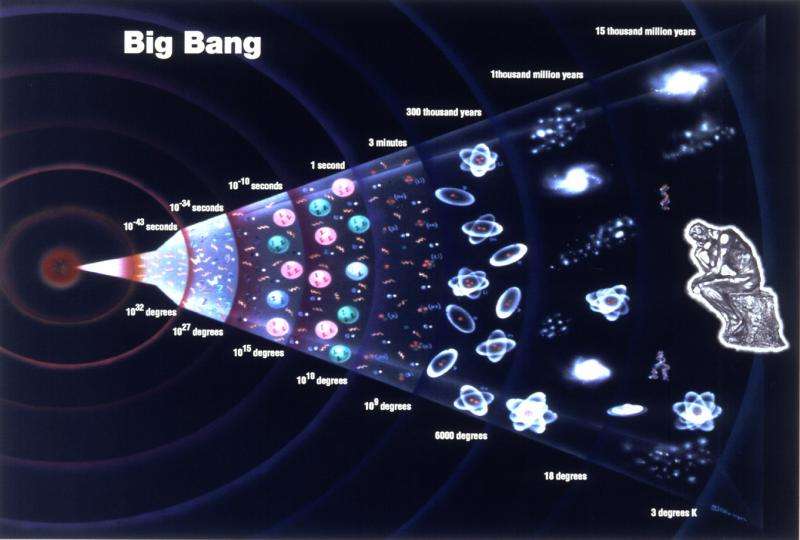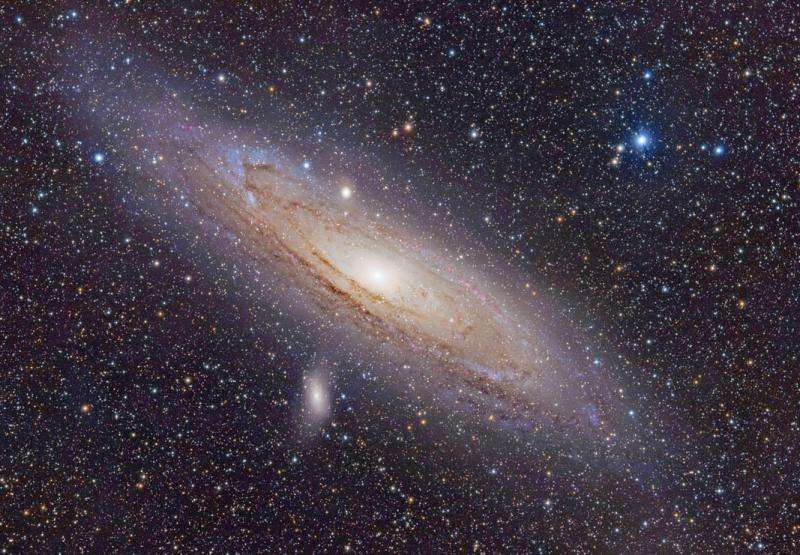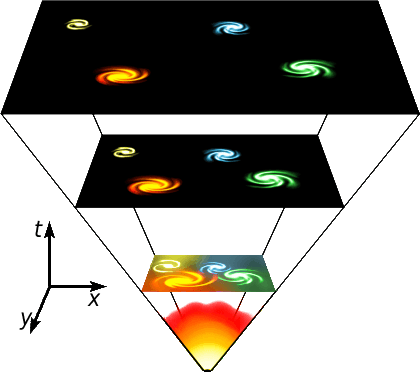Will the Big Bang go backwards?

Imagine the Big Bang in your mind. You're picturing galaxies hurtling past in all directions, like so much star shrapnel from a celestial pinata.
I stole this cool expanding toy from my son. It'll help me explain what's going on. Here it is, closed up. That's the singularity. And then, Big Bang, and the universe expanded, getting bigger and bigger until it reached its current size which is not to scale. We know there are galaxies are pulling at each other with their mutual gravity, theoretically slowing each other down.
Here's a big question. Will the expansion go on forever? Will it keep coasting, and never quite come to a stop? Will it expand and come to a stop over the course of infinite time? Or will the mutual gravity of all these galaxies eventually overcome the momentum and pull everything back in again.
Will the Big Bang go in reverse, eventually smashing the entire universe into a singularity again – the Big Crunch. And maybe this leads to another Big Bang, and then another Big Crunch, and so on and so on. Is this how the universe ends, and then begins again, and then probably ends again? And you could build a forward only time machine that keeps looping into a totally new but identical universe over and over?
Before I get onto the question, I need to remind you that is a bad model. The Big Bang didn't happen there, in the middle. It falls apart with the actual topography of the universe. There's no center. The Big Bang happened everywhere. Go watch that video and then come back and laugh mockingly at this hilarious oversimplification of the topology of the cosmos. Actually, just stay here we'll link this at the end so you can go watch it then. Will the Big Bang go in reverse?
Astronomers have asked themselves this exact question, and we'll never know. Ever. Not because they can't figure it out, it's because they won't tell us. They've totally got sensitive enough instruments answer it.
Actually, that's not true. They won't shut up about it. As a result, I can say with 100% certainty that the universe is expanding, no question. We can see galaxies speeding away from us in all directions. So if it is going to crunch back down, it's got to stop expanding first.
So, how fast is that going on? Astronomers refer to this as the Hubble Constant. This is the amount that space is expanding. The best estimate is that, on average, galaxies are moving away from each other at about 70 km/sec/megaparsec.
In other words, if you take a megaparsec of space – a cube which is about 3.2 million light-years across. Slightly bigger than the distance to the Andromeda galaxy, which has nothing to do with Kessel runs.

For every second that goes by, that cube gets about 70 km bigger. A galaxy that's 3.2 million light-years away is now 70 km further, and now it's 70 km even further. Was this faster in the past? Will it be slower in the future? Can we calculate these different numbers and figure out what the future holds?
The speed of expansion depends on the momentum from the Big Bang, counteracted by mutual gravity from all galaxies. If the pull is strong enough, momentum will be overcome and pull the galaxies back together. That's the Big Crunch. If the pull is too weak, then the expansion runs forever.

How did they figure out the answer? They measured the density of the universe using NASA's Microwave Anisotropy Probe. Too dense, crunch. Not dense enough, eternal expansion.
Apparently, the universe is exactly dense enough that it will keep on expanding forever, and finally coast to a stop in an infinite amount of time. This rules out the Big Crunch. But that's just the density alone.
Our universe is far stranger than astronomers ever imagined. Instead of gradually slowing down, like a driverless shopping cart at Costco, the expansion of the universe is accelerating. Thanks to our new mysterious and freaky friend, dark energy, discovered in 1998.
Astronomers observed distant supernovae billions of light-years away to get a sense of how the universe was expanding in the past. Instead of finding a result that matched one of the three theories I mentioned earlier: expanding forever, coasting to a halt, or eventually reversing direction, they did a whole bunch of really complicated math and research and discovered something completely bizarre. Galaxies are moving faster away from each other now than they did in the past. Some mysterious force is accelerating the expansion of space.
Wouldn't it be cool if the universe went through cycles, with Big Bang, then Big Crunch, and so on? Currently, nature doesn't care what we think would be cool. Instead, the expansion of the universe is accelerating. It'll never stop, and it'll never run the Big Bang in reverse. Until nature starts caring, we'll have to stick with Steam sales.
Source: Universe Today


















